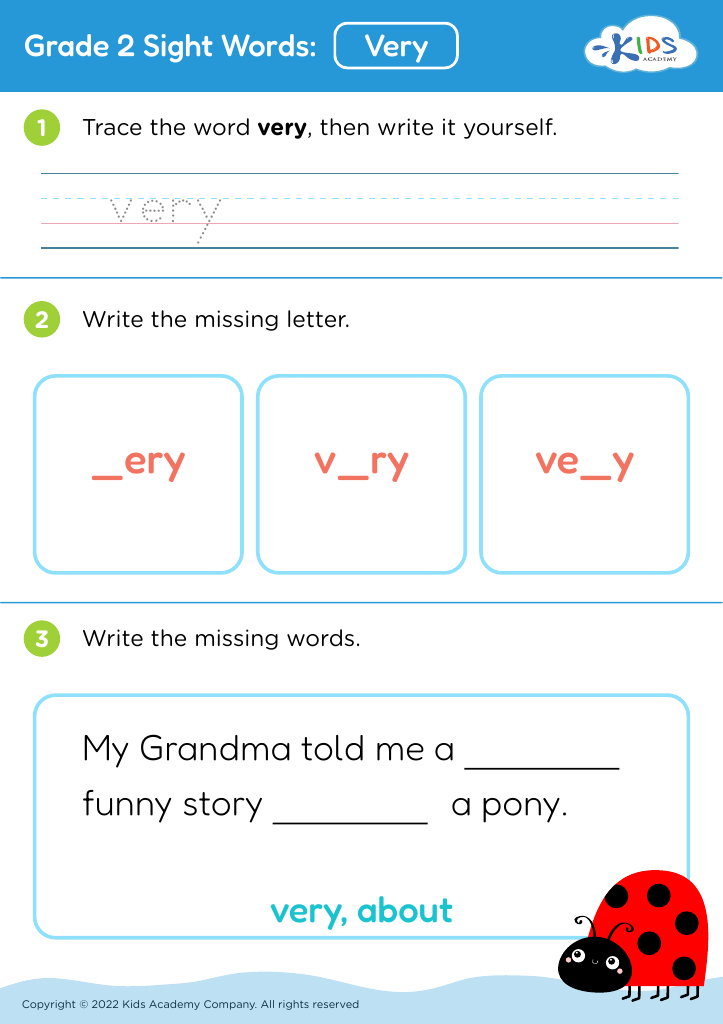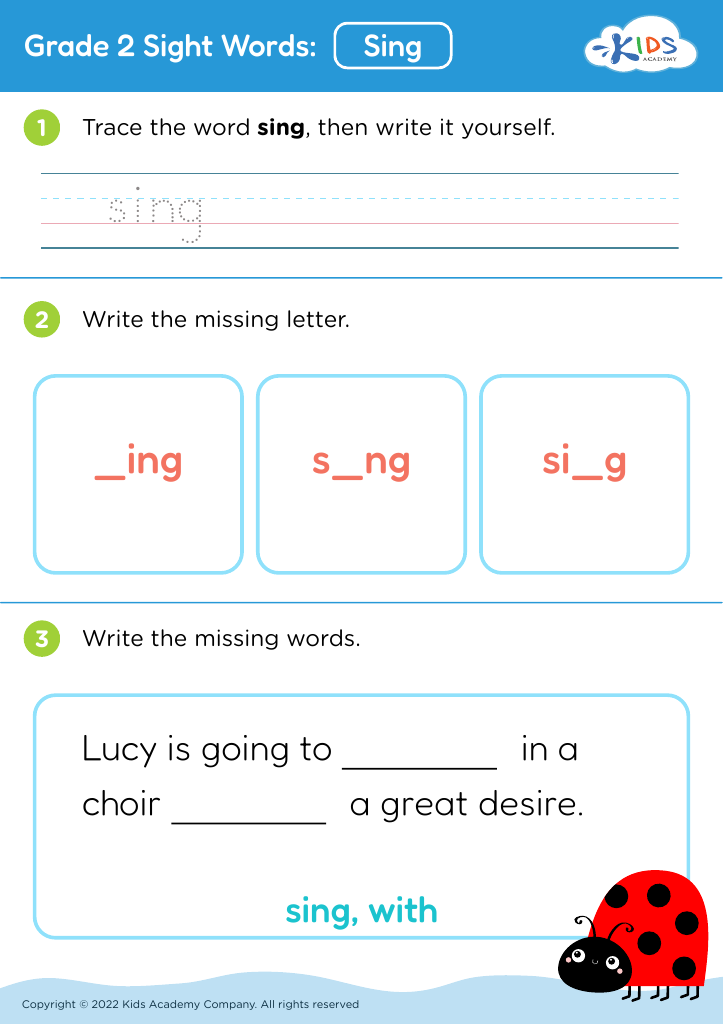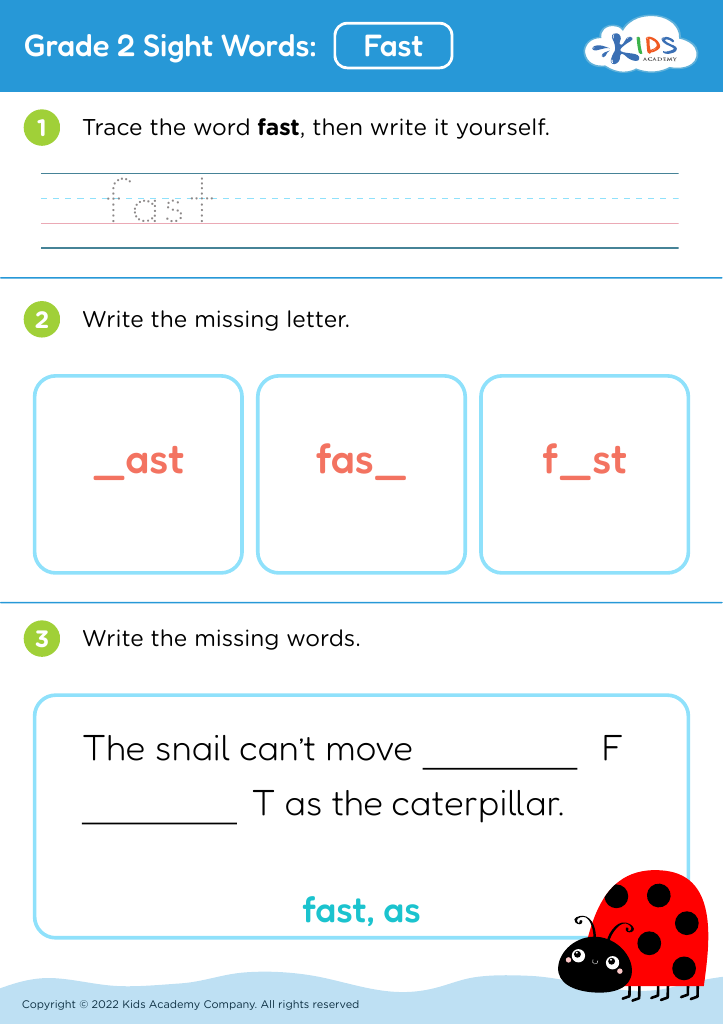Addition Practice Building Vocabulary Worksheets for 8-Year-Olds
3 filtered results
-
From - To
Explore our engaging "Addition Practice Building Vocabulary Worksheets" designed specifically for 8-year-olds. These worksheets integrate mathematical addition with vocabulary enhancement, making learning fun and effective. Children will solve addition problems while simultaneously expanding their word knowledge through interactive exercises and creative activities. This dual approach boosts comprehension and reinforces essential skills in both math and language. Ideal for classroom settings or at-home learning, these worksheets provide the perfect balance of challenge and enjoyment. Help your child develop confidence in addition and vocabulary proficiency with our thoughtfully crafted resources. Unlock their potential with practice that truly makes a difference!
Parents and teachers should prioritize addition practice and vocabulary building for 8-year-olds because these skills are foundational for academic success and everyday life. During this age, children are often transitioning from simple arithmetic to more complex problem-solving and analytical thinking. Mastering addition not only helps them perform well in mathematics but also builds their confidence, encouraging a positive attitude towards learning.
Moreover, integrating vocabulary building with math practice enriches their comprehension and communication skills. Children who build both their mathematical vocabulary and number skills can express ideas clearly, understand instructions better, and engage more effectively in discussions. For instance, understanding terms like “sum,” “addend,” and “total” can enhance their ability to grasp more advanced math concepts later on.
Additionally, proficient addition skills are essential for real-life applications such as budgeting, cooking, and time management. By emphasizing these interconnected skills, parents and teachers equip children not only for academic rigor but also for practical life scenarios. Encouraging regular addition practice while simultaneously focusing on vocabulary makes learning holistic and prepares children, laying the groundwork for future success in mathematics and beyond. Ultimately, fostering these skills nurtures critical thinkers and effective communicators, essential traits for lifelong learning.









.jpg)













